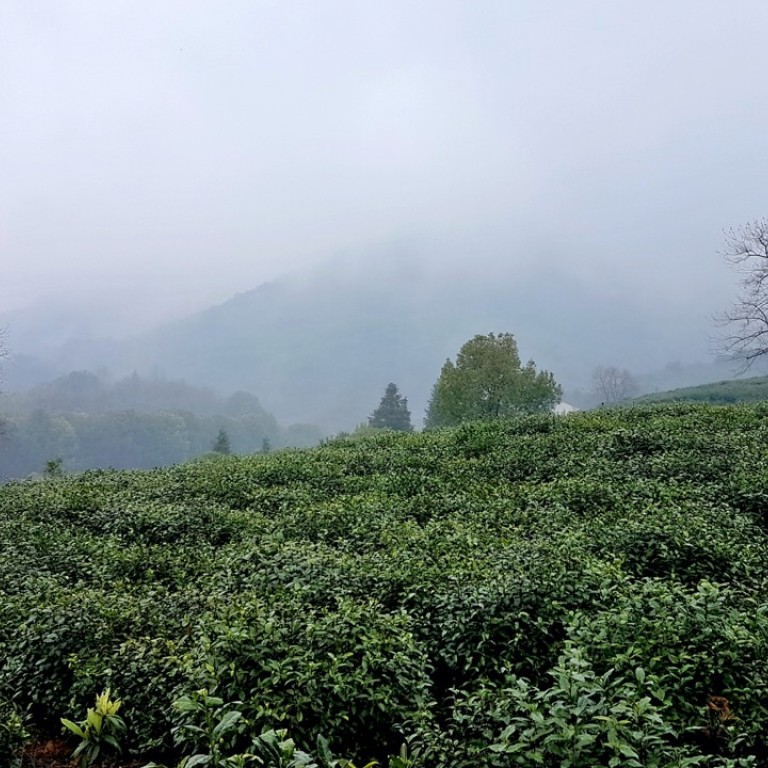
How to get hands-on picking and roasting China’s Longjing tea, famous brew from Hangzhou’s West Lake
The variety of green tea historically grown around the scenic West Lake is among the best in China, and the spring picking season has become a tourist draw. Here’s everything you need to know about joining in the harvest
Legend has it that in the Qing dynasty, during one of Emperor Qianlong’s visits to the West Lake in eastern China, he personally plucked a number of tea leaves and granted imperial status to 18 Longjing bushes in Longjing Village.
Today, tourists can mimic the emperor in his leisurely pursuits at the many tea establishments in Hangzhou, the capital of Zhejiang province where the West Lake is situated.
Only the leaves harvested from the West Lake region can be graded as Xihu Longjing, widely regarded as one of China’s best teas, although plantations all over Zhejiang do produce other grades of Longjing tea.
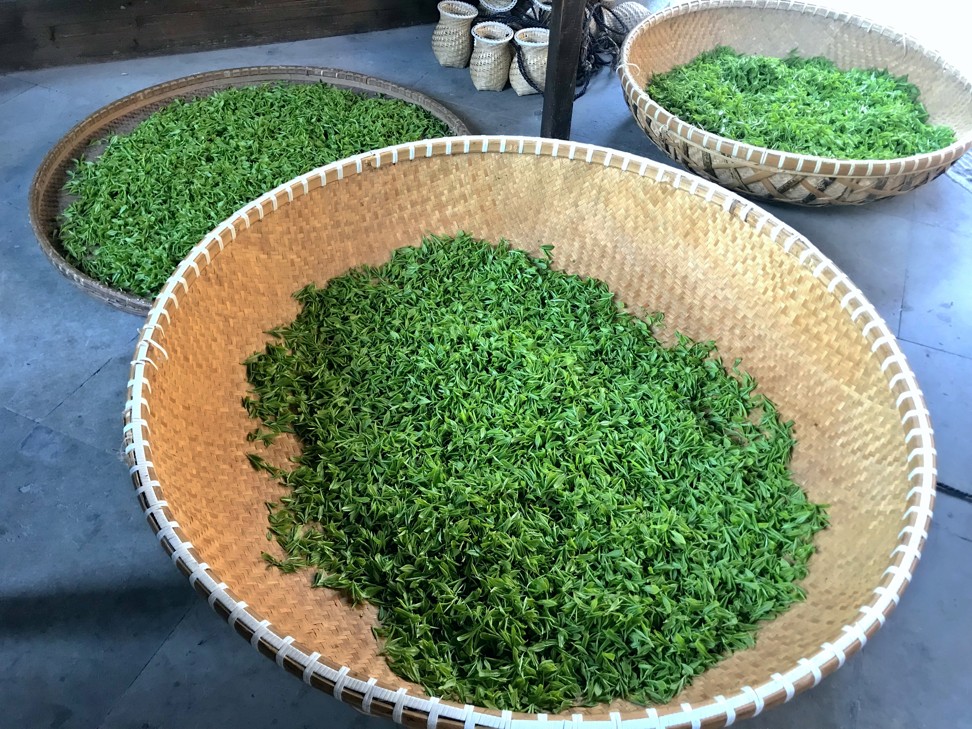
Xihu Longjing is only harvested in spring and its premium crops are produced during two specific periods in April:before the Ching Ming festival on April 5 (known as Ming Qian picking), and before April 20 (known as Yu Qian picking). Finding and picking the Ming Qian Longjing is the most labour-intensive, as there are fewer of these leaves but they grow quickly on warm days.
As temperatures rise, more buds emerge on the bushes, and tea harvesting enters its busiest period from April 21 until the end of May. Also known as “new tea”, the delicate, hand-pressed tea buds with one leaf can be in such high demand that prices reach 8,000 yuan (US$1,270) per 500 grams.
Water, water, everywhere at expansive and restful Hangzhou wetlands resort
Glassware is the preferred vessel for serving Xihu Longjing, but this has nothing to do with the taste. Glass was once an expensive material, so drinking tea out of glassware was a reflection of high socioeconomic status. While that is no longer the case, the tradition has stuck.
Tea is often served as the main attraction alongside traditional confectionery, or as an accompaniment for the local cuisine. Despite its arduous production methods, drinking Longjing is a simple affair involving just a cup, leaves and hot water.
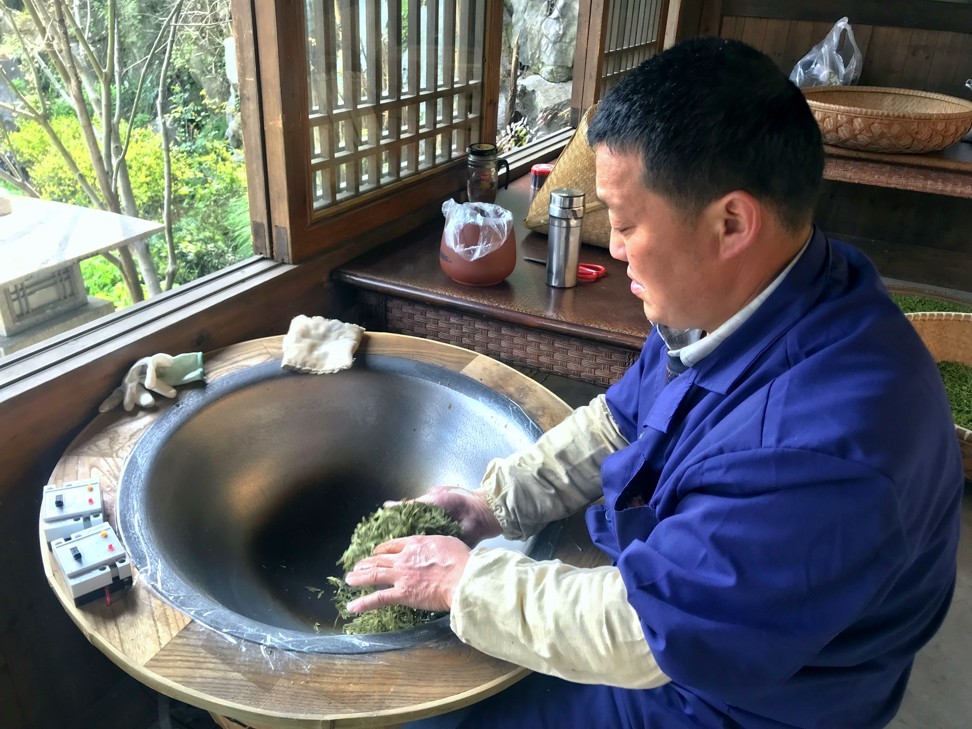
Along with the centuries-old temples, pagodas and scenic gardens that West Lake is famous for, terraced tea plantations are a common sight in the region. Xihu Longjing leaves are hand-picked by villagers, who sometimes share their workload with tourists, keen to step into their shoes.
The great tea robbery: how the British stole China’s secrets and seeds – and broke its monopoly on the brew
Leaves are hand roasted immediately after picking to prevent oxidisation, which helps maintain the refreshing flavour for which the tea is known. Great care is taken to prevent the leaves breaking or bending during the roasting process. The leaves are carefully fried and manually pressed in a hot, oiled wok for 15 minutes. Now, partially dehydrated and with a firm shape, the leaves are cooled and subjected to a stringent selection process before being roasted for a final time, then packed.
Treating the precious leaves is no easy task. After several demonstrations from a seasoned tea roaster, I found many were either burnt or broken by my inexperienced hands. This is probably why, unlike tea picking, this part of the experience is usually left up to the experts.
From the ancient West Lake tea villages to events run at luxury hotels, there are plenty of options for those looking to experience the art of tea making. Here are some of the best on offer.
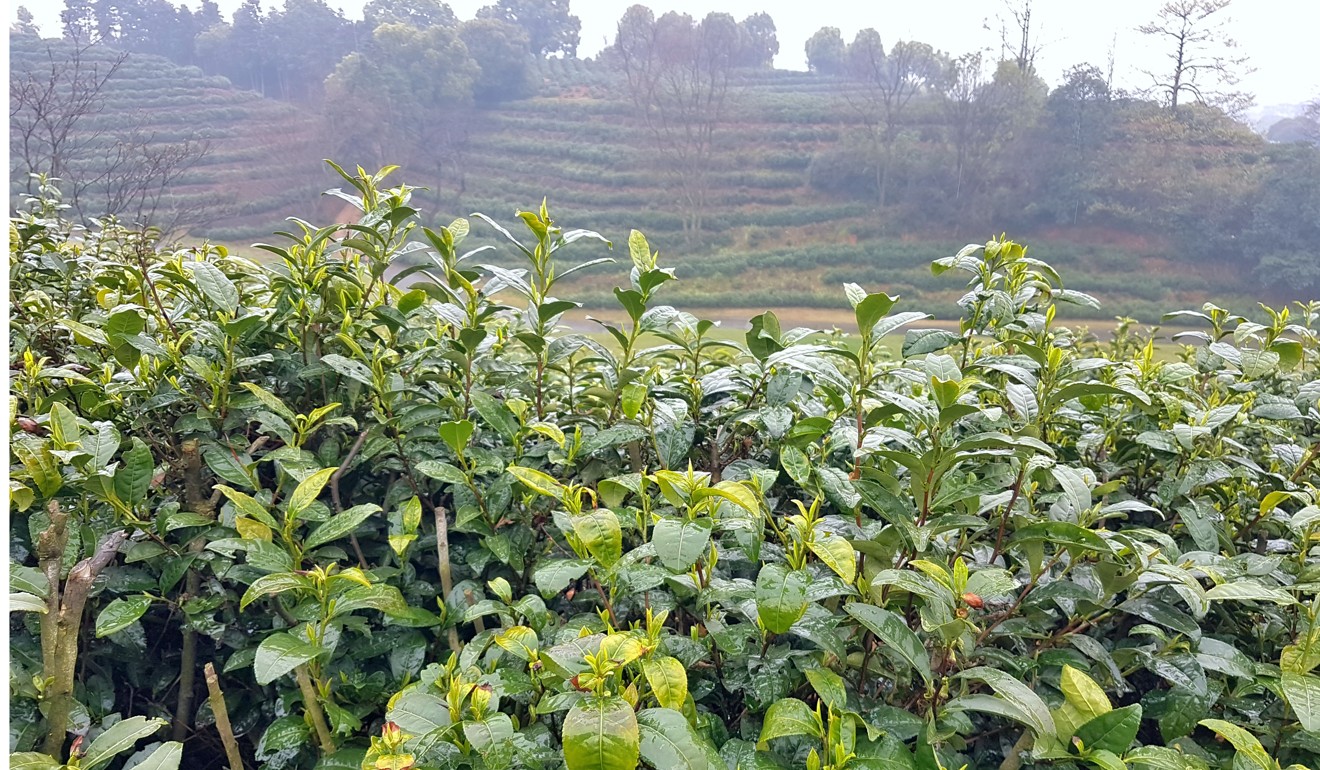
Tea experiences in Hangzhou
Longjing Village: widely considered the birthplace of Longjing tea, the tea terraces of Longjing Village form a lush spectacle well worth a visit, despite the crowds. The 18 tea bushes granted imperial status by Emperor Qianlong are said to be still alive at the Hu Gong Temple in the village.
Susan Jung’s recipes for green tea and honey madeleines, and coconut macaroons
Meijiawu Village: a traditional tea village where you can opt to pick tea leaves with the locals and experience the entire process from harvesting to roasting, all within the span of a morning.
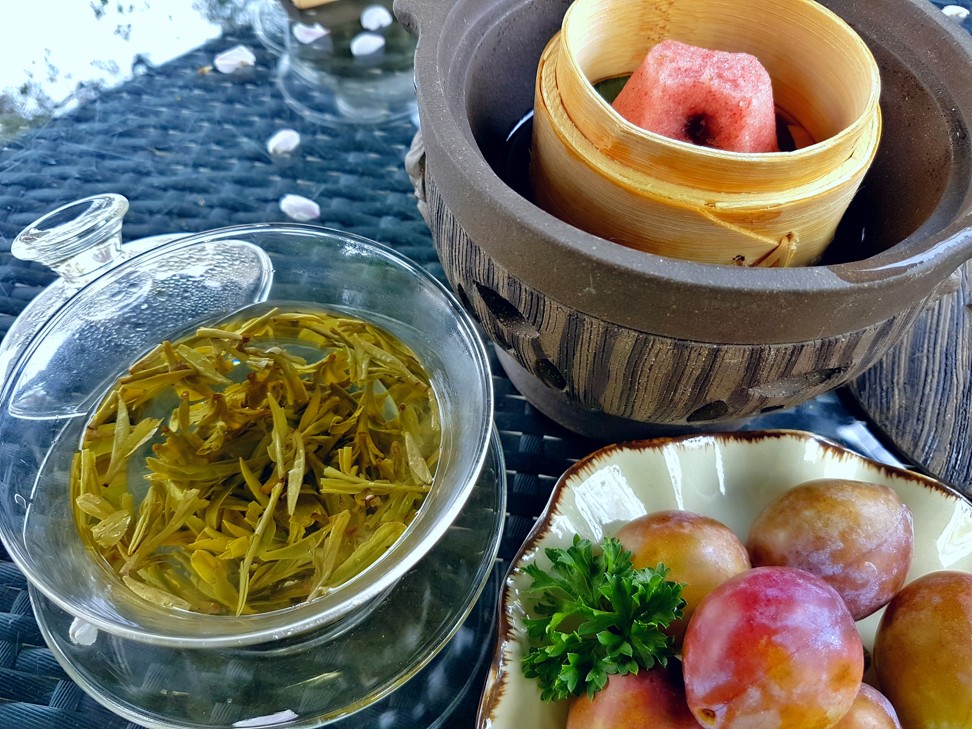
Hu Yin Tea House: part of The New Hotel Hangzhou, right before the West Lake, Hu Yin is a cluster of cosy suites featuring antique furniture and tea ware. There is a resident tea consultant to guide you through dozens of premium brews sourced from diverse regions, including Xihu Longjing.
Tea and Beauty in Hangzhou
Yongfu Temple: at this 1,600-year-old temple, monks and locals tend tea fields among the cultured gardens. Visitors can sample the Longjing produced here with simple vegetarian food served at the Fuquan Tea House, where hosts give talks on drinking tea and cultivating one’s heart.
Fuchun Resort: guests can sign up for morning tea picking sessions followed by tea roasting demonstrations, all within the comfort of the five-star resort. The resort is built next to hectares of tea plantations on the surrounding hillsides.
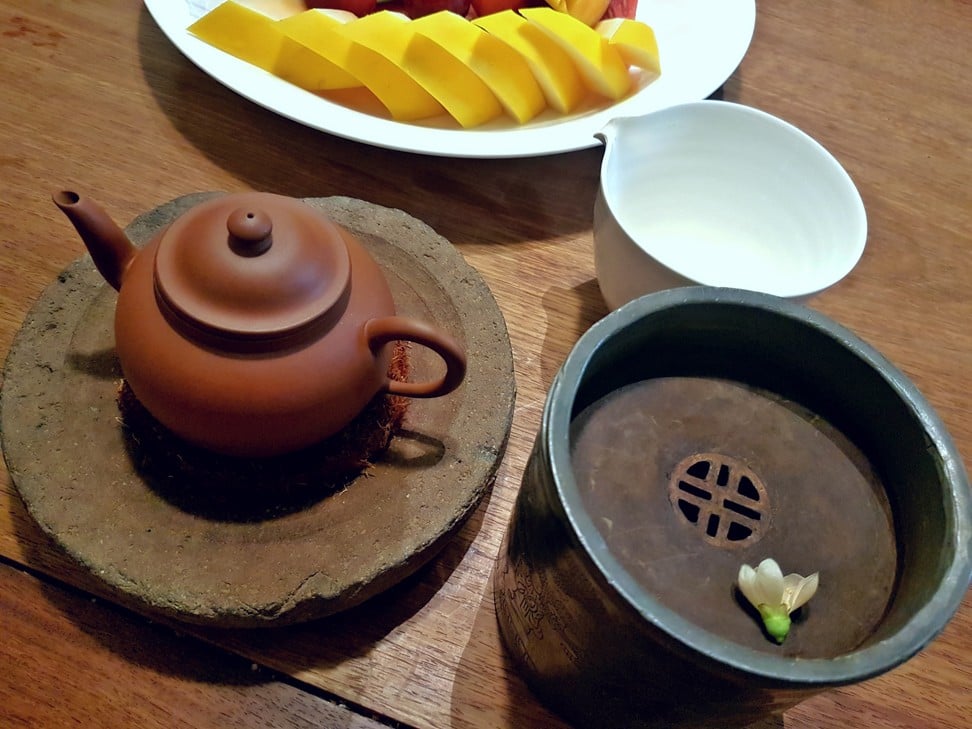
Hangzhou travel tips
Hangzhou is busy all year round, but April till late May is high season with crowds converging on the West Lake region where most of the tea plantations are located. Despite the crowds, lovers of tea should try getting to the West Lake region at least once. Book and set off early, preferably on a weekday; avoid heavy traffic by staying in a hotel near the West Lake, such as the Four Seasons Hangzhou, the Sofitel West Lake Hangzhou or Zhejiang Xizi Hotel. To avoid disappointment, don’t take advice or make bookings through independent vendors; instead make use of your hotel’s concierge desk for all arrangements.
Getting there:
Cathay Dragon and China Eastern Airlines fly direct between Hong Kong and Hangzhou daily.

